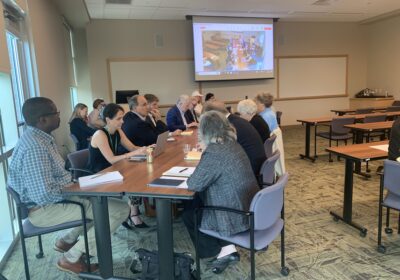Immigrants born in U.S. should not be denied citizenship
The Birthright Citizenship Act of 2009 is intended to amend the Immigration and Nationality Act (INA) of 1952 by clarifying who is eligible for U.S. citizenship upon birth. Under the INA, a child born in the U.S. is granted citizenship even if neither parent is a citizen. The bill’s sponsors hope to change that.
The INA is a set of laws governing the U.S. Citizenship and Immigration Services, a part of the Department of Homeland Security. The laws follow the 14th amendment, which was added in 1868 to allow citizenship to all who were born under the jurisdiction of the U.S. government.
The new bill is another attempt to prevent the social and political rise of the newest generation of U.S. immigrants, coming largely from Mexico and other Hispanic nations.
Looking at the ascension of different ethnicities of immigrants in the U.S., a collective political voice has been used to raise the social standing of other groups. The Donegal Mafia: An Irish Political Machine by Paul Sacks explores how Irish voters organized and were able to gain leverage in their communities, which were often hostile toward Irish immigrants. This leverage may have led to higher wages and social acceptance.
Mike Murphy, a Republican strategist, reflected on his party and the Hispanic vote in an interview with Time.
“In Texas, the crucial buckle for the GOP’s Electoral College belt, the No. 1 name for new male babies – many of whom will vote one day – is Jose,” he said.
The sponsors of this bill understand that if an immigrant’s child can obtain citizenship at birth, it will only be 18 years until that child is a potential challenge to the established order of political power. The political protectionism is obvious, because if they were truly interested in eliminating the economic threat illegal immigration poses on their hard-working constituents, they would simply focus on immigrant hiring practices.
In 2008, Iowa meatpacking company Agriprocessor was the site of the largest immigration bust of all time, according to The New York Times. In the bust, 389 illegal aliens were captured. More than 20 were under age, some as young as 13, with many working 17-hour shifts, six days a week. Under the Bush Administration’s policies, the plant was only charged a fine of $42,750.
This does not seem to be an effective deterrent to the most significant contributors to illegal immigration: business owners. The meaningless penalty only further convinced business owners that the risk of hiring illegals was low and the payoff high. However, a person is less likely to immigrate to the U.S. illegally if the prospects of finding a job are slimmer.
Many feel that business owners would lose too much or risk going out of business if they didn’t hire illegals. But though it would be more expensive to hire those legally acceptable, eventually the market would correct itself – increased salaries would lead to increased spending which would lead to increased profits to supplement the higher pay.
Do the sponsors of this bill expect to keep a population that works for less than
minimum wage without any chance for eventually having their children’s voices heard politically? No immigrant should be asked to work for such low wages without the promise of citizenship for them or their children.
One of the most important things to remember about this proposed legislation is that it attempts to negate the 14th amendment, which states, “All persons born or naturalized in the United States, and subject to the jurisdiction thereof, are citizens of the United States and of the state wherein they reside.”
The Constitution is the final word when it comes to laws in the U.S. The bill’s supporters are not trying to amend the Constitution, but feel they can get around it by changing the INA.
Sponsor Nathan Deal, a representative from Georgia, and 77 of the 78 co-sponsors are Republicans. Though their party is losing clout politically, they are still trusted government officials. They should not be wasting precious time and energy on this fruitless proposition that will only hurt children born into citizenship who already face the likelihood of their parents being deported.
Justin Rivera is a junior majoring in history.






